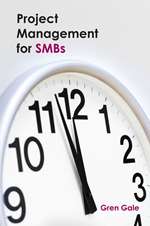In a recent survey of over 2,000 people, 20% admitted to having fallen asleep at a meeting, with men apparently slightly more likely to nod off than women. When you consider that middle managers spend around 35% of their time in meetings and senior managers more like 50%, making meetings interesting, productive and efficient should be close to the top of everyone’s lists.

Meetings, like them or not, are a means of communicating and resolving issues. If they’re not your cup of tea, tough! They won’t go away. They can, however, be made a lot more effective. There’s little point in insisting that busy people attend meetings that waste their time, so follow these suggestions and you’ll reduce the chances of it happening:
1. Communicate the objectives and agenda to all participants before the meeting starts
2. If a document is to be reviewed, brief participants to read it beforehand
3. All appropriate people must be invited – and must attend
4. But on the other hand the numbers attending must also be kept to the minimum required – don’t invite spectators
5. Everyone should turn up on time
6. It should be made clear that it’s unacceptable for attendees to use phones, tablets or laptops at meetings. This is fast becoming a real bane of meetings – how can you have a productive meeting if half of the attendees are distracted by e-mails, texts and instant messages?
7. The meeting owner needs to be prepared and shouldn’t just try to ‘take it as it comes’
8. He or she must keep the meeting to the agenda and avoid being side-tracked
9. Actions and decisions from the meeting must be minuted and followed up.
10. There can be particular issues where a remote participant dials in to a meeting being held in a meeting room. If you regularly hold meetings where one or more participants dial in, then the meeting owner needs to work hard to involve the remote participants, who otherwise can just end up listening to a hubbub of noise.
11. Videoconferencing is a lot more effective way of holding meetings between geographically remote staff than conference calls. As well as receiving better feedback in terms of body language, there is less of a temptation to try to multi-task and service e-mails and other work in a video conference than an audio conference. With Skype and Google Hangouts available, video conferencing is no longer the very expensive option that it used to be.
You also need to decide how many meetings you, personally, need to attend. It’s very easy to find yourself overwhelmed by them, so be selective. You don’t need to go to them all, and need to trust team members to run meetings, and to find their own solutions to certain issues.
However, meetings are a good medium for you to collect data. This might be hard data about progress against a plan, risks and issues, or useful information about how you think the team is working together, or concerns about a supplier.
Gren Gale is a project management consultant and founder of PM Results . He is the author of Project Management for SMEs (UK and Europe) and Project Management for SMBs (the Americas) and has published the on-line training course Practical Project Management. He can be contacted on +44 (0) 7788 925027 or gren.gale@pmresults.co.uk



Recent Comments